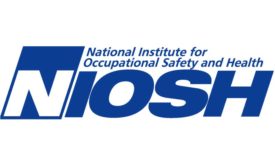Environmental Health and Safety
Cover Feature
Best practices for using vaporized hydrogen peroxide indoors
September 21, 2022
Keynote speakers to inspire at NSC Safety Congress and Expo in San Diego next week
ISHN will be there with live updates from the show
September 15, 2022
Red Wing Shoe Company champions everyday heroes, aka safety professionals
Workers can submit their own stories to be highlighted by footwear company
September 14, 2022
The ‘stop work authority’ approach
It’s effective for managing risk and safety, but there are challenges to consider
September 6, 2022
Become a Leader in Safety Culture
Build your knowledge with ISHN, covering key safety, health and industrial hygiene news, products, and trends.
JOIN TODAYCopyright ©2025. All Rights Reserved BNP Media.
Design, CMS, Hosting & Web Development :: ePublishing










